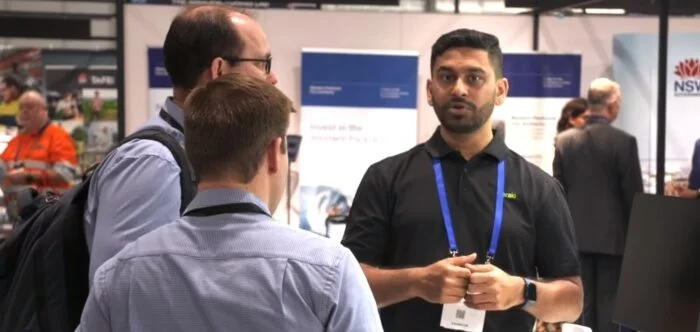Conferences are active events brimming with opportunities for learning, networking, and growth. But have you ever considered the unique advantages of being more than just an attendee? This brings us to the pivotal question: “Why should you volunteer at a conference?”
Volunteering at these events opens doors to invaluable experiences. It’s a chance to meet and collaborate with other volunteers, creating a supportive and interactive environment. Such teamwork often leads to forming new connections effortlessly.
Additionally, as a volunteer, you’re likely to interact with various attendees, turning simple requests for assistance into engaging conversations and potential friendships. Are you intrigued by how volunteering can enrich your conference experience? Stay with us as we explore these enriching aspects in greater detail.
What Do Volunteers at a Conference?
Conference volunteers welcome attendees and guide them smoothly from registration desks to different sessions throughout the event venue. They handle tasks such as distributing badges, checking tickets, providing information, and assisting participants with directions or seating arrangements.
Volunteers also support speakers by setting up presentations, microphones, or visual aids, ensuring every session proceeds without technical issues. Their helpful presence creates a friendly environment, making guests feel comfortable and ready to fully engage in conference activities.
As part of their duties, volunteers also manage refreshment stations, arrange conference materials, and oversee event schedules in order to maintain order and efficiency. In Canada, for instance, volunteers at a large conference in Canada may help international guests navigate the venue easily.
These tasks greatly enhance the overall participant experience, reducing confusion and allowing attendees to focus solely on learning, networking, and discussions. Ultimately, the contributions volunteers provide are essential, significantly influencing the smooth organization, success, and memorable experiences of conference attendees.
What are the Roles of Volunteers at a Conference?
Volunteers at a conference play a pivotal role in its success, contributing in various capacities to ensure a seamless experience. They are the unsung heroes, working behind the scenes and sometimes in the forefront to facilitate the smooth running of the event. Here are the key roles of a volunteer at a conference:
- Registration Desk Assistance: Volunteers at the registration desk welcome attendees, providing badges and conference materials. Their friendly demeanor sets the tone for a positive conference experience.
- Session Coordination: They manage session rooms, assisting speakers with setup and ensuring timely session commencement. Their efforts keep the conference agenda on track.
- Information Guidance: Volunteers offer directional and general information to attendees, helping navigate the conference venue. They act as the go-to source for any queries or assistance.
- Networking Facilitators: They encourage and facilitate networking among attendees, enhancing the social value of the conference. Their role is crucial in raising professional connections and interactions.
- Technical Support: For technology-driven sessions, volunteers provide essential technical assistance and troubleshooting. They ensure that presentations and equipment function smoothly.
Volunteers at a conference are essential for creating an organized, welcoming, and engaging environment. Their varied roles contribute significantly to the event’s overall success and smooth operation.
Why You Should Volunteer at a Conference?
Volunteering at a conference isn’t just about lending a helping hand; it’s a gateway to many benefits. The advantages are varied and valuable, from personal growth to professional networking. Here are a few crucial reasons why you should volunteer at a conference:
Networking Opportunities
Volunteering opens a unique platform for networking with professionals and peers. You’ll encounter diverse individuals, from industry leaders to fellow enthusiasts. This exposure can lead to lasting professional relationships and mentorship opportunities, which are invaluable in any career.
In the heart of the event, you’re positioned to engage in meaningful conversations. Such interactions often lead to knowledge exchange, collaboration offers, or even job prospects. Networking in this setting is both effortless and effective, making it a prime benefit.
Skill Development
Volunteering allows you to hone existing skills and develop new ones in a practical setting. Whether it’s leadership, communication, or problem-solving, the experience enhances your professional toolkit. These skills are transferable, benefiting your career and personal growth.
Moreover, you’re often faced with dynamic situations requiring quick thinking. This helps in cultivating adaptability and resilience, skills highly valued in any professional environment. Such experiences contribute significantly to your personal and career development.
Behind-the-Scenes Insight
Gaining behind-the-scenes insight into how large events are organized is another perk. You’ll learn about the intricacies of event planning, management, and execution. This knowledge is particularly beneficial if you’re considering a career in event management or related fields.
This perspective helps you appreciate the effort that goes into creating successful events. It also provides a deeper understanding of the industry, aiding in informed career choices. Such insight is rare and invaluable, especially for those eyeing a future in event-related roles.
Access to Exclusive Content
Volunteers often have access to sessions and workshops that might otherwise be costly. This access allows you to learn from experts and absorb valuable content. It’s an educational experience that would otherwise require significant investment.
Additionally, you might get the chance to interact with speakers and presenters. Such interactions can provide deeper learning and personal growth opportunities. This exclusive access is a significant advantage of volunteering at conferences.
Community Contribution
Volunteering is a meaningful way to contribute to the community. By aiding in the smooth running of the conference, you’re supporting knowledge sharing and professional development. It’s a fulfilling experience, knowing you’re part of something larger.
This contribution also enhances your sense of belonging and community engagement. It promotes a sense of achievement and satisfaction, knowing your efforts have a positive impact. Contributing to the community in this way is both rewarding and enriching.
Volunteering at a conference offers a spectrum of benefits, from networking and skill development to exclusive insights and community contributions. Each reason underscores the value and impact of volunteering, making it a highly recommended endeavor for personal and professional growth.
Required Qualifications of Volunteers at a Conference
Volunteering at a conference is an opportunity that comes with certain prerequisites. These qualifications ensure that volunteers are well-equipped to handle their responsibilities effectively. Volunteers at conferences perform a variety of tasks, essential for maintaining the smooth operation and a positive conference atmosphere. Here are the qualifications required to become a volunteer at a conference:
- Strong Communication Skills: Effective communicators are key, as they interact with diverse groups of people. Clear and friendly communication enhances the attendee experience.
- Problem-Solving Ability: Volunteers should be adept at quick thinking and resolving unexpected issues. This skill is vital for managing unforeseen challenges.
- Teamwork and Flexibility: The ability to work well in a team and adapt to changing situations is crucial. Flexibility ensures the smooth handling of various tasks.
- Basic Technical Knowledge: It is beneficial to have a basic understanding of technology when working in roles that require technical support. Managing technical aspects of the conference becomes easier this way.
- Organizational Skills: Being organized is essential for managing registration desks and session coordination. It ensures efficiency and minimizes confusion.
In summary, the required qualifications for volunteers at a conference are geared towards ensuring a well-organized and enjoyable experience for all attendees. These skills not only contribute to the success of the event but also provide valuable experience for the volunteers themselves.
How to Become a Volunteer at a Conference?
Volunteering at a conference can be a rewarding and enriching experience, offering unique insights and networking opportunities. The process of becoming a volunteer involves several steps, each important in its own right. Here is a step-by-step guide to help you become a volunteer at a conference:
Step-1. Research Opportunities
Start by identifying conferences that align with your interests or professional goals. Research their websites and social media for volunteer opportunities. This initial step is crucial for finding a conference where your skills and interests will be most valuable.
Step-2. Understand the Requirements
Each conference has its own set of requirements for volunteers. Carefully review these to ensure you meet the necessary qualifications, such as specific skills, availability, or age restrictions. Understanding these prerequisites is key to a successful application.
Step-3. Submit an Application
Once you’ve found a suitable conference and understood the requirements, it’s time to apply. Fill out the volunteer application form, usually available on the conference’s website. Ensure your application highlights relevant skills and experiences that make you a suitable candidate.
Step-4. Attend an Interview or Training Session
Some conferences might require an interview or training session for volunteers. If so, attend these sessions punctually and with a professional attitude. They are often designed to prepare you for your role and assess your suitability.
Step-5. Receive Confirmation and Instructions
After your application and any necessary interviews or training, you’ll receive a confirmation. Along with this, you’ll get detailed instructions about your role, schedule, and other pertinent information. It’s important to review these details thoroughly to understand your responsibilities.
Step-6. Participate in the Conference
Finally, participate in the conference as a volunteer. Fulfill your duties responsibly and take the opportunity to network and learn. Your contribution will be a vital part of the event’s success.
Becoming a volunteer at a conference is a structured but straightforward process. It requires research, understanding, and commitment to your role. By following these steps, you can ensure a rewarding and impactful volunteering experience at any conference.
Tips Find the Right Conference to Volunteer
Finding the right conference to volunteer at is crucial in ensuring a fulfilling and beneficial experience. It involves considering your interests, goals, and the potential opportunities each event offers. To assist you in this selection process, here are some tailored tips to guide you in making an informed decision:
- Align with Your Interests: Choose a conference that aligns with your personal or professional interests. This ensures you’re engaged and passionate about the event, enhancing your volunteering experience.
- Research the Event’s Reputation: Look into the conference’s history and reputation. A well-established event often offers more structured and rewarding volunteering opportunities.
- Consider the Location: Opt for a conference that’s either local or in a location you’re excited to visit. This adds an element of convenience and personal enjoyment to your volunteering experience.
- Evaluate the Networking Potential: Assess the networking opportunities the conference might offer. A gathering with attendees and speakers in your field can be invaluable for career development.
- Understand the Commitment Required: Ensure you know the time and responsibilities involved. Choosing a conference that fits your availability prevents any undue stress.
Selecting the right conference to volunteer at is a balance of personal interests, logistical considerations, and professional benefits. By following these tips, you can choose an event that aligns with your goals and offers a rewarding and enriching experience.
Final Thoughts
As a result of our comprehensive discussion, volunteering at a conference is a multifaceted opportunity, enriching both personally and professionally. The key lies in selecting the right conference, aligning with your interests and goals, and understanding the commitment involved.
A crucial aspect of this process is accurately filling out the application, as it showcases your suitability for the role. Should errors occur, timely correction is essential to maintain credibility and avoid misrepresentation. Inaccuracies can lead to missed opportunities or mismatched roles, underscoring the importance of precision.
This journey, from application to participation, embodies the essence of “Why you should volunteer at a conference?” – a chance to grow, network, and contribute meaningfully to a community. Adopt this path with diligence and enthusiasm for an experience that promises both personal growth and professional advancement.








